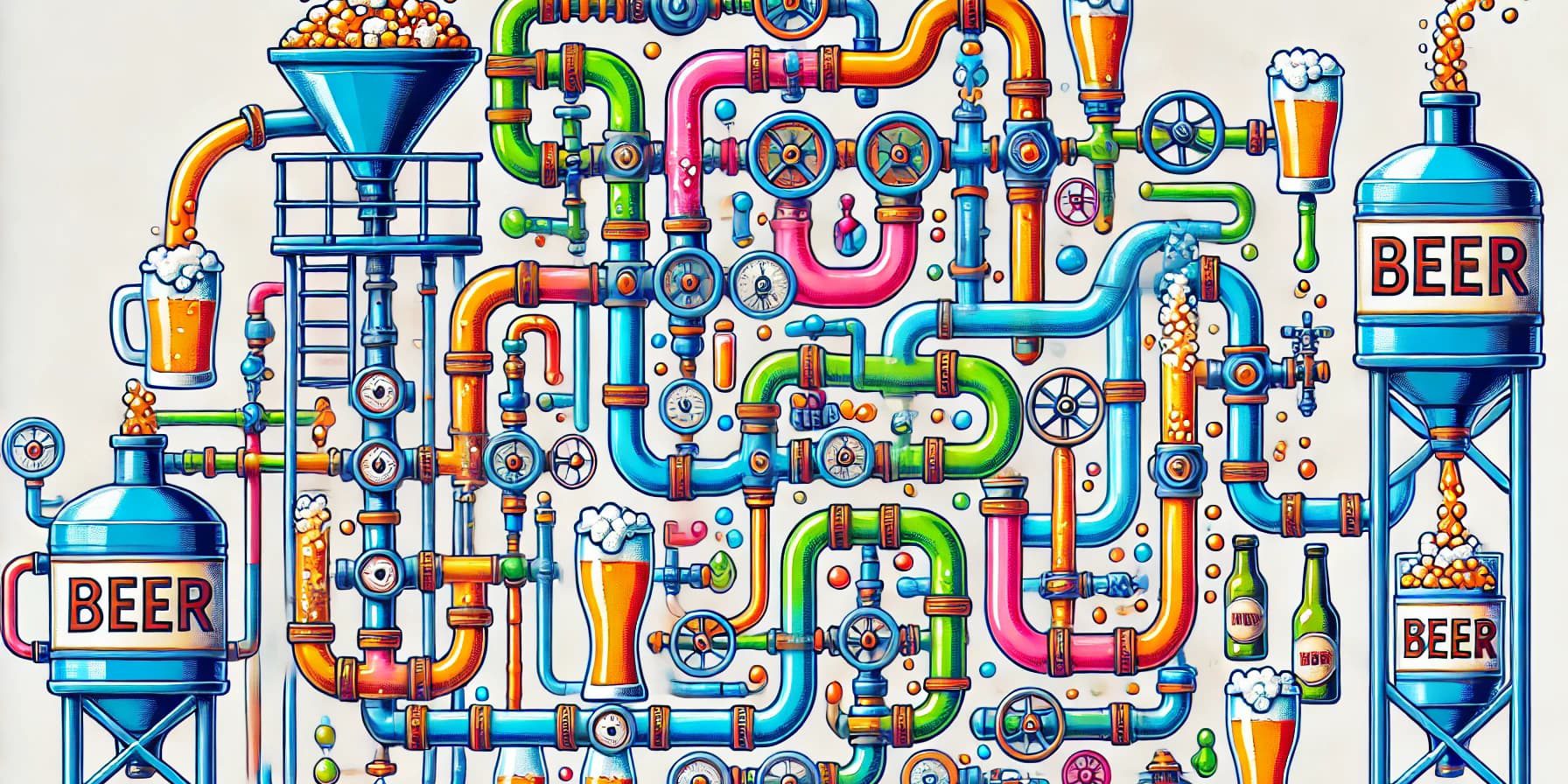Introduction and Scope
A sales pipeline is an essential tool that allows businesses to track potential buyers and guide them through the different stages of the sales journey. For wineries, breweries and distilleries, especially those operating in the B2B (business-to-business) sector, a sales pipeline becomes crucial in managing longer sales cycles and high-value deals. In this article, we will explore how businesses can develop an effective B2B sales pipeline.
What is a Sales Pipeline?
A sales pipeline is a workflow that represents the sales process. It helps sales teams track where potential buyers are in their journey, from initial contact to closing the deal. Each stage in the pipeline represents a step in this process, helping salespeople stay organised and efficient.
B2B vs B2C
- B2B Focus: Companies wanting to sell alcohol to other businesses, such as restaurants, distributors, and hotels, often need a more complex pipeline. The sales cycles are longer, negotiations more detailed, and relationship management more essential.
- B2C Focus: In contrast, B2C sales, which focus on direct sales to individual customers, tend to have shorter sales cycles and rely more on impulse purchases..
How do you build a sales pipeline using the B2B approach?
a) Understanding the B2B Sales Pipeline
Building a B2B sales pipeline for wholesale focused companies requires breaking down the sales journey into clear stages. These stages help your sales team stay organised and ensure no opportunity is lost. From finding potential leads to closing high-volume contracts, each stage in the pipeline needs clear goals.
What are the different stages?
- Prospecting: Identify potential buyers.
- Qualifying leads: Assess their buying intent and capacity.
- Building relationships: Engage and personalise communication.
- Presenting your products: Showcase wines and tell your story.
- Closing the deal: Negotiating terms and securing a formal agreement.
- Post-sale follow-up: Ensuring satisfaction and fostering loyalty.
b) The Role of CRM (Customer Relationship Management) Tools
Effective pipeline management requires tools that help wineries and distilleries track leads, automate tasks, and build relationships. CRM systems are key to managing these processes, especially when dealing with multiple high-value customers.
Why Use a CRM?
- Organisation: CRMs help keep track of interactions with each lead.
- Automation: They automate follow-ups and reminders, ensuring no opportunity slips through the cracks.
- Lead Scoring: CRMs can rank leads based on how likely they are to buy, allowing sales teams to prioritise their efforts.
- Analytics: These tools provide data-driven insights into what’s working in your sales process and what needs improvement.
Which are some of the best CRM tools you can use?
- HubSpot CRM: Ideal for small to mid-sized wineries, HubSpot offers a free, easy-to-use platform that helps you track leads, automate emails, and monitor your sales pipeline.
- Salesforce: For larger operations, Salesforce provides a highly customisable platform that can scale with your business, offering advanced analytics and integration with other business systems.
- Monday: Offers a wide range of customisation options, and the ability to organise leads, making it ideal for managing sales pipelines, tracking leads, and collaborating with team members.
(Mondays)
- Vinsight: While Vinsight is not solely a CRM, it does have a growing number of tools to help manage the sales process including sales activity planning and recording, sales reporting, tagging leads with their sales steps and email templates to name some.
(Vinsight)
Conclusion
A well-structured sales pipeline helps wineries, breweries and distilleries track and manage their sales process efficiently, ensuring that no opportunity is missed. By using CRM tools and focusing on the different stages of the sales process, companies can maximise their revenue and build strong, long-term relationships with B2B clients. In future articles, we’ll dive deeper into B2C pipelines and strategies to enhance wine, beer and spirits sales across both wholesale and consumer sectors.






